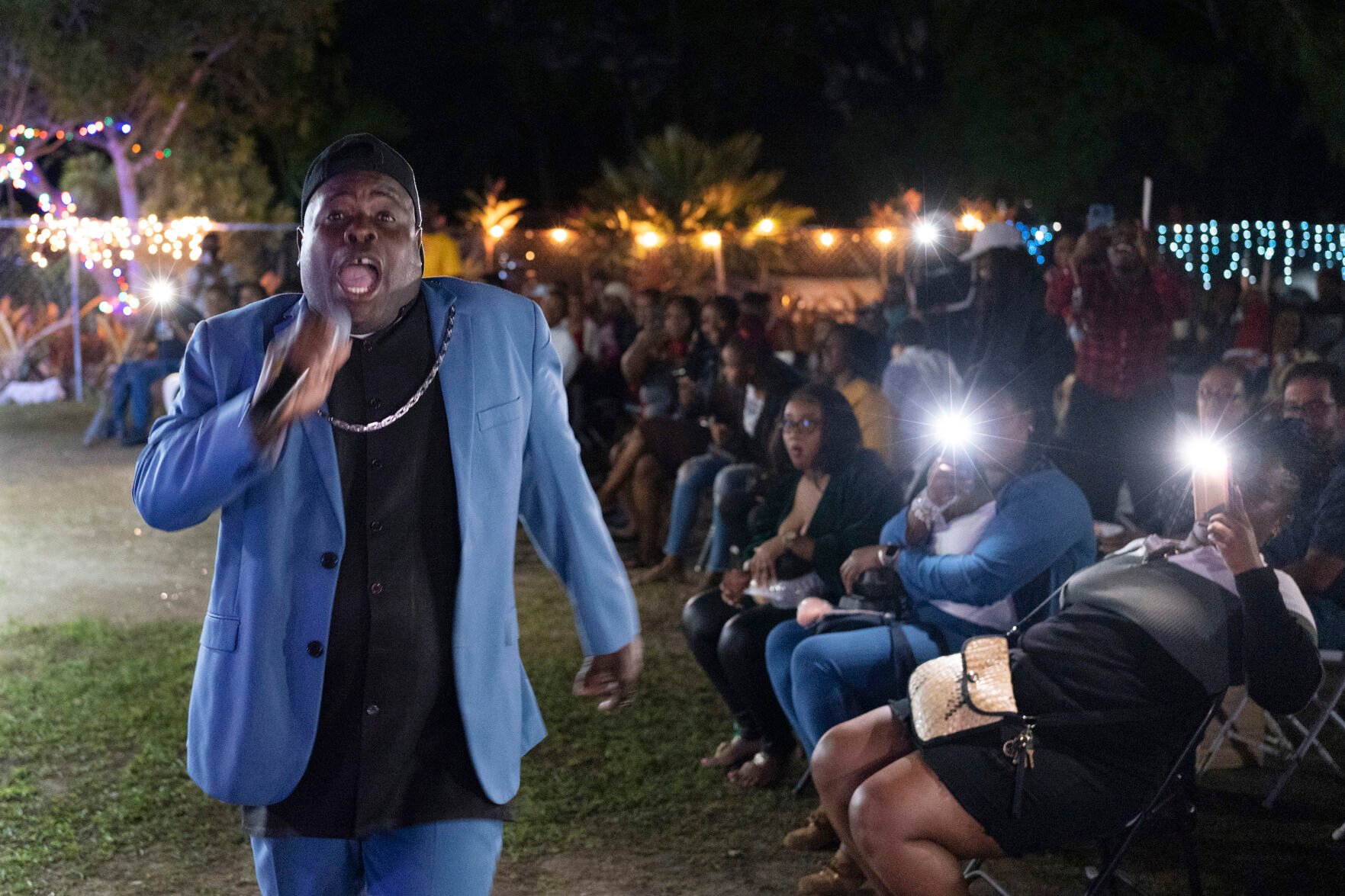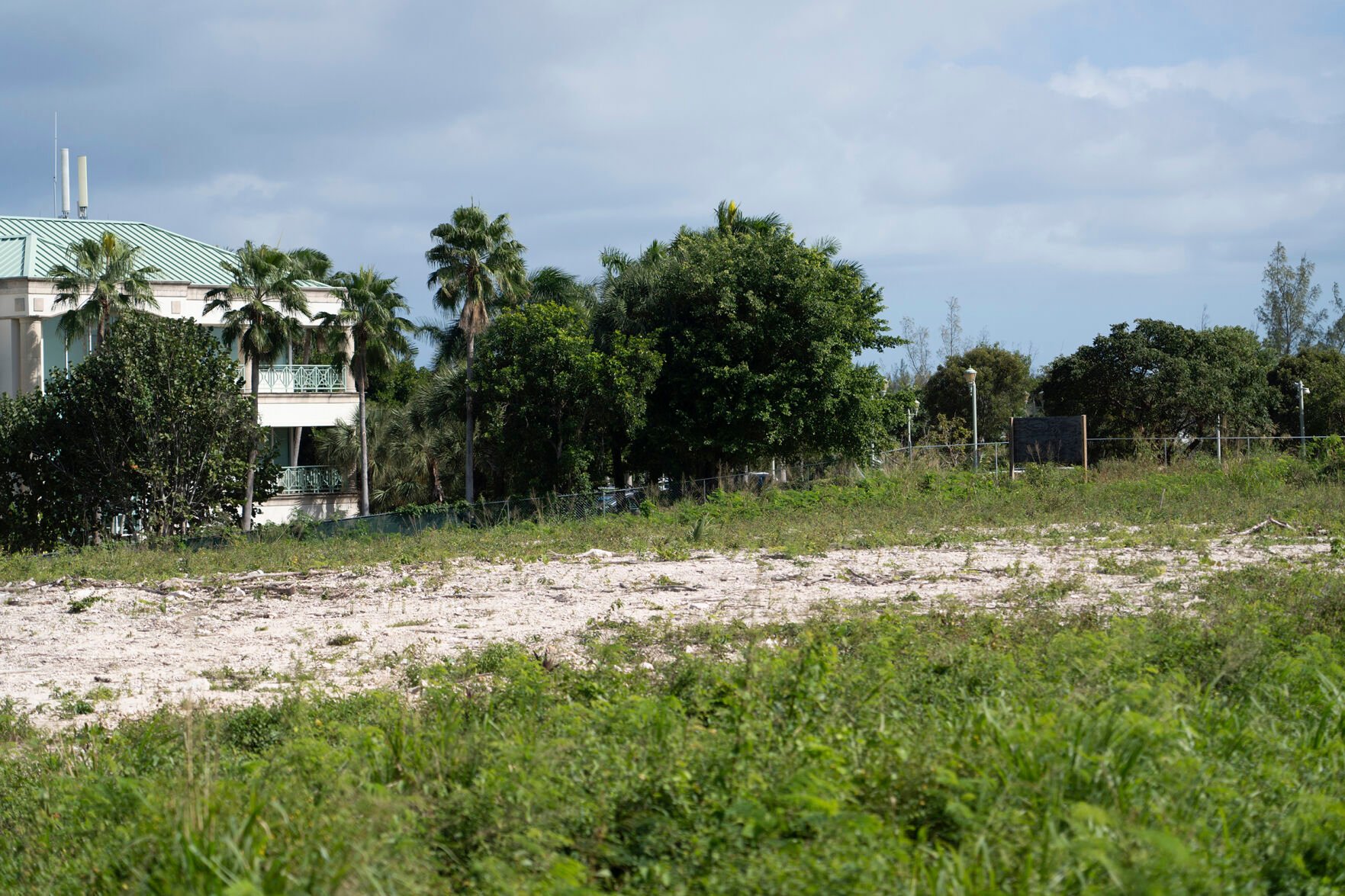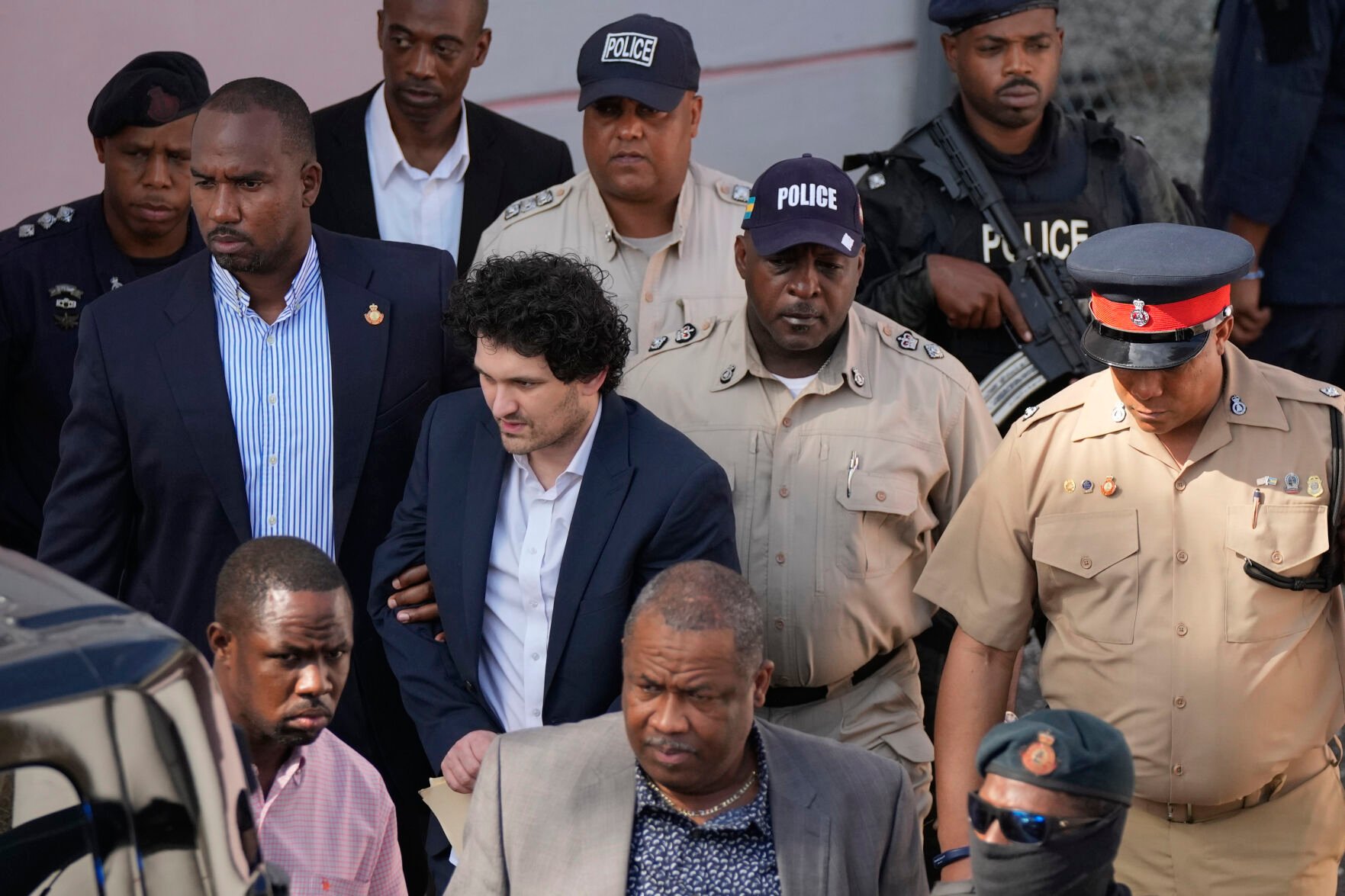‘The money is gone’: Bahamas tries to turn page after FTX
NASSAU, Bahamas — Dressed in a canary blue suit on a warm December night, sweat dripping from his brow, Bishop Lawrence Rolle belts out the lyrics to his latest hit song for the hundreds of children and adults gathered to celebrate Christmas.
“FTX!,” he sings, bent over and shaking his head for emphasis. “The money is gone!”
“FTX!,” his backup singer and audience scream back. “The money have done gone!”

Ken Sweet, Associated Press
Bishop Lawrence Rolle performs in front of children and adults on Dec. 8, 2022, at Mt. Carmel Preparatory Academy in Nassau, Bahamas. Rolle's ministry received $50,000 from FTX in early 2022, one of several donations the cryptocurrency exchange made to the Bahamian people when it relocated to the Caribbean island nation in 2021.
The cryptocurrency exchange FTX was supposed to be the crown jewel of the Bahamian government’s push to be the global destination for all things crypto, after years of having an economy overly reliant on tourism and banking. Instead, FTX is bankrupt and Bahamians are trying to figure out what’s next for their country and whether their national crypto experiment has failed. Regulators are trying to locate FTX’s customers’ missing money.
Meanwhile, charities like Rolle’s and dozens of contractors now out of work hope that another company will come along and bring new opportunities to the island nation, without the complications and embarrassment of an alleged billion-dollar fraud.
Rolle, a Pentecostal preacher known as the “singing bishop,” is a prominent figure in the Bahamas. For decades, he’s cooked and donated food to the poor and provided school lunches from his neighborhood kitchen at International Deliverance Praying Ministry in Over-The-Hill, one of the most impoverished parts of the capital of Nassau. Rolle and his staff feed roughly 2,500 people a week.
Rolle had been invited by Kirby Samuel, the principal of Mt. Carmel Preparatory Academy, to sing as part of the school’s Christmas celebration. His act consisted mostly of a half dozen Afro-Caribbean gospel songs, but one number stood out — his social media hit about the recent collapse of FTX.
Rolle’s ministry received $50,000 from FTX in early 2022, one of several donations FTX made to the Bahamian people when it relocated to the Caribbean island nation in 2021. It was money, he said, that was used to restore a food storage trailer and make additional food donations. Rolle said it cost upward of $10,000 a week to run his food donation program.
Asked about the failure of FTX, Rolle described it as a sad distraction from the many issues facing the country. Others are angry, particularly with Sam Bankman-Fried, the young founder of FTX. The Bahamas had a reputation, like some other Caribbean isles, as a destination for illicit and offshore finance. There was a belief that crypto would allow the island to diversify its economy, give Bahamians more financial opportunities and overall help provide the country a more prosperous future.
The country enacted the Digital Assets and Registered Exchanges Act in 2020, making the Bahamas one of the first countries to put together a regulatory framework for cryptocurrencies and other digital assets. The prime minister, Philip Davis, participated in the groundbreaking ceremony for FTX’s new $60 million headquarters in Nassau in April, along with Bankman-Fried.

Ken Sweet, Associated Press
Little remains on a lot in Nassau, Bahamas, shown on Wednesday, Dec. 7, 2022, where cryptocurrency exchange FTX broke ground on its headquarters in April. The country's prime minister, Philip Davis, participated in the groundbreaking ceremony, along with Sam Bankman-Fried, the head of FTX.
“Their arrival was sort of the culmination of the work the Bahamians did to move in this direction,” said Stefen Deleveaux, president and CEO of the Caribbean Blockchain Association.
Several other crypto companies and startups are headquartered in the Bahamas, some of them at an incubator known as Crypto Isle, not far from downtown Nassau.
Deleveaux said he became interested in crypto as early as 2014, and mostly has been trying to focus his organizations’ efforts on the non-trading parts of crypto, like blockchain technology, financial inclusion and technological uses. He remains skeptical about cryptocurrency trading.
“It’s frustrating. Now when people think about crypto they are going to think of FTX,” Deleveaux said. “That’s going to make my own job much harder.”
Just as quickly as FTX became engrained in elite Bahamian circles did the whole thing unravel. FTX failed in spectacular fashion in early November, going from solvent to bankrupt in less than a week. One food catering servicer said he had to let go most of his workers after FTX, his biggest contract, went bankrupt.

Rebecca Blackwell, Associated Press
Sam Bankman-Fried, center left, founder of the failed cryptocurrency exchange FTX, is escorted out of Magistrate Court after a hearing on Dec. 18, 2022, in Nassau, Bahamas.
Bankman-Fried, 30, was arrested last month in the Bahamas, and extradited to the U.S. to face criminal charges in what U.S. Attorney Damian Williams called “one of the biggest frauds in American history.” The floppy-haired crypto entrepreneur has been released on bail and is scheduled to go on trial in October.
Meanwhile, law enforcement and regulators in the U.S. and the Bahamas, as well as lawyers and FTX’s new management, are trying to determine how much of investors’ and customers’ money “is gone,” as Bishop Rolle repeats often in his song. Estimates of how much money was lost in the FTX collapse have varied significantly, since some assets are still being recovered, but one estimate puts the losses at around $8 billion to $10 billion.
As FTX filed for bankruptcy, there was speculation in Bahamian media about whether Rolle might have to return the $50,000 donation, which he said was spent in roughly a month after it was received.
“I just wish there will be better companies than FTX,” Rolle said. “Many of our children got no parents, or we got parents who have two or four or five children, or kids have no father. We can barely afford to feed them. I pray to God that someone comes to donate even more.”
